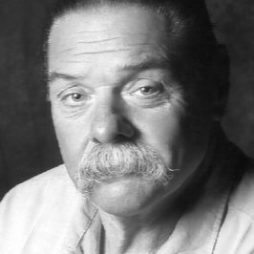
By Mike Rhodes
Boston Woodard was paroled from the California prison system in March of this year but was immediately transferred to the Solano County jail, held on unknown charges. Many readers of this newspaper will remember Woodard as the incredibly insightful writer from inside the California State Prison system who wrote about the conditions he and other inmates were experiencing. At one point, because of his writing, he was put in the hole (administrative segregation), his typewriter was taken away and he was tortured (if you consider solitary confinement torture, which I do).
After years of working with Boston on his numerous articles for the Community Alliance and helping him publish a book, Inside the Broken California Prison System (available on Amazon), I had the privilege of meeting him shortly before he was to be released. To say that he was excited about his release would be a vast understatement. We talked about him being at the next Community Alliance newspaper fund-raiser where he could chat with people who have enjoyed reading his articles. Boston was working on a second book with local prisoner rights activist Maria Telesco that would be finished when he was released. He planned to live in Berkeley.
Boston’s friends in the Bay Area were about to pick him up at the Solano State Prison and help him transition to a new life. Instead, we received word that he had been transferred to the Solano County jail. Nobody, including Boston, knew for sure what was going on. In a couple of days, it became clear that the authorities were not going to let him go; he was being held on a 1973 probation violation in Massachusetts. Was this retaliation for his exposé of the scandalous activity he reported on from within the California Prison Industrial Complex or a bizarre hiccup in the process of his release? We weren’t sure.
Within a month, he was transferred to a private detention facility in Nevada. From there, Boston was transported on a month and a half long journey across the country with long stays in some of the worst jails each state had to offer. Boston told me he even made a brief stop at the Fresno County jail. The New York Times did an in-depth article about the prisoner transportation business last year, “Private Prisoner Vans’ Long Road of Neglect.” They found that the for-profit companies that move prisoners across country are not well regulated, citing examples of men and women being deprived of bathroom stops, being given inadequate medical attention and sometimes dying on these hellish cross-country trips.
After Boston served 38 years in the California prison system, he was taken to Massachusetts where he faced the alleged violation of a probation charge. It turned out that the paperwork related to these charges was missing. There were no case files, evidence or arrest reports to support any real proceedings. Undeterred, the prosecutors insisted on moving forward with charges against Boston.
The consensus among his supporters was that the charges would be dropped and Boston would be free. Letters of support and job and housing offers were sent to the court with the expectation that he would be on his way back to California soon. That was in mid-June of this year.
In a surprise development, the court ruled against him. Boston appeared in the Chelsea court on the morning of June 30 and according to Marvin Mutch, one of his close friends, “the unimaginable became stark reality as Boston was sentenced by the court to three years. The judge determined that his 39-year-old California actions alone were enough to violate his 1973 terms of probation and to reinstate his two-year suspended sentence as well. She ordered the one-year term for violating the conditions of his probation to be served consecutive to, or separate from, his two-year suspended sentence. This means he will have to his serve the two-year term before he can begin serving the one-year violation sanction.”
Boston supporters are continuing their efforts to appeal the judge’s ruling, and we will inform readers of this newspaper of developments. Contributions are needed to help with Boston’s legal defense. If you would like to help, contact me by phone or e-mail.
*****
Mike Rhodes is a past editor of the Community Alliance newspaper and the author of Dispatches from the War Zone, a book about the homeless situation in Fresno. Contact him by phone 559-978-4502 or email mikerhodes@comcast.net.
